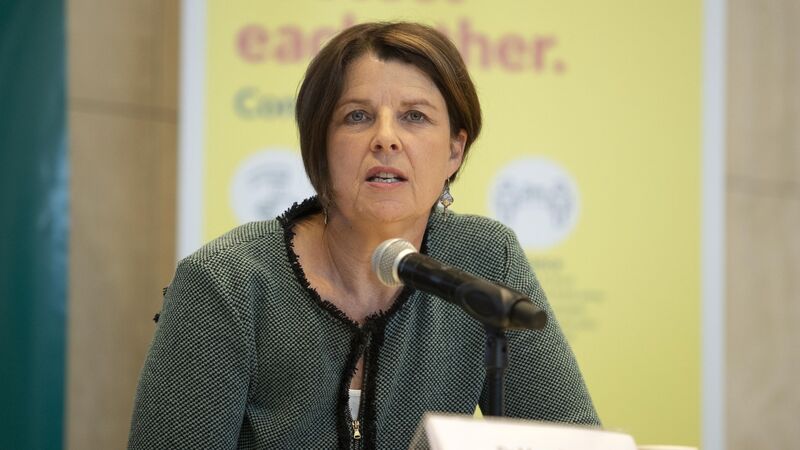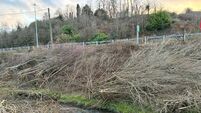Cork GP: 'A child who gets the odd cold should still attend school'

A child who just "constantly sniffles and sneezes" but is otherwise well and does not have any respiratory symptoms should go to school, the president of the Irish College of General Practitioners (ICGP).
Dr Mary Favier, a Cork GP, was speaking at a meeting of the National Public Health Emergency Team (NPHET) on Monday night. There has been an increase in calls to GPs from concerned parents ahead of back-to-school, Dr Favier said.
Children who tend to get the odd cold or sniffle should go to school, she said. However, parents will need to be extra vigilant this year.
Any child who has any of the symptoms that might suggest Covid-19, including a temperature, a cough or being unable to taste food and smell, should not attend school, she said. They should also stay home until 48 hours after their symptoms settle.
Meanwhile, public health measures in schools will need to remain in place throughout the year to keep them open, regardless of the number of outbreaks or the country’s case numbers, according to Dr Cillian De Gascun.
“I think it's important to realise, without being pessimistic about it, we want our schools to stay open for the school year, which is nine months.”
“What we don’t want people to do is to get through the first month without any outbreaks and say ‘This is great, this is fine, we can do this’ and then become complacent,” he said.
“Even if we get to two weeks, four weeks, six weeks without an outbreak or with low cases numbers, all the measures that are in place, everybody still needs to follow that right through the winter and into the new school year.”
The Department of Health was notified of a further 147 new cases of Covid-19 on Monday, bringing the total number of positive tests here to 28,116. No new deaths were reported.
Dr Ronan Glynn, the acting chief medical officer, reiterated that schools have not been a significant driver of community transmission internationally.
Read More
He said: "The key measure that will protect our schools is that everyone continues to follow public health advice."
“Ultimately we are trying to keep the cases as low as possible for three reasons; to protect our education system, to protect the vulnerable, and to protect our healthcare service.”
If a child is deemed to be a close contact following an outbreak in a school, parents will be contacted directly by public health authorities, Dr Glynn said. Contact tracing will be in place, and risk assessments will be carried out to trace the interactions of students or teacher, he said. When asked about updated guidance from the World Health Organisation (WHO) around face coverings and children, Dr Glynn said NPHET will continue to review the evidence.
He said:"We’ve been clear with our advice that all adolescents and others should wear face coverings in appropriate settings, including in secondary school environments. For now, that is the guidance and we are sticking with it but of course we will continue to review the evidence.”
To date, 3% of confirmed cases have been in children here.
He said: "We do know that children get Covid, but we also know that the vast majority have very mild symptoms."
It is about putting that context of children's education, he said.





